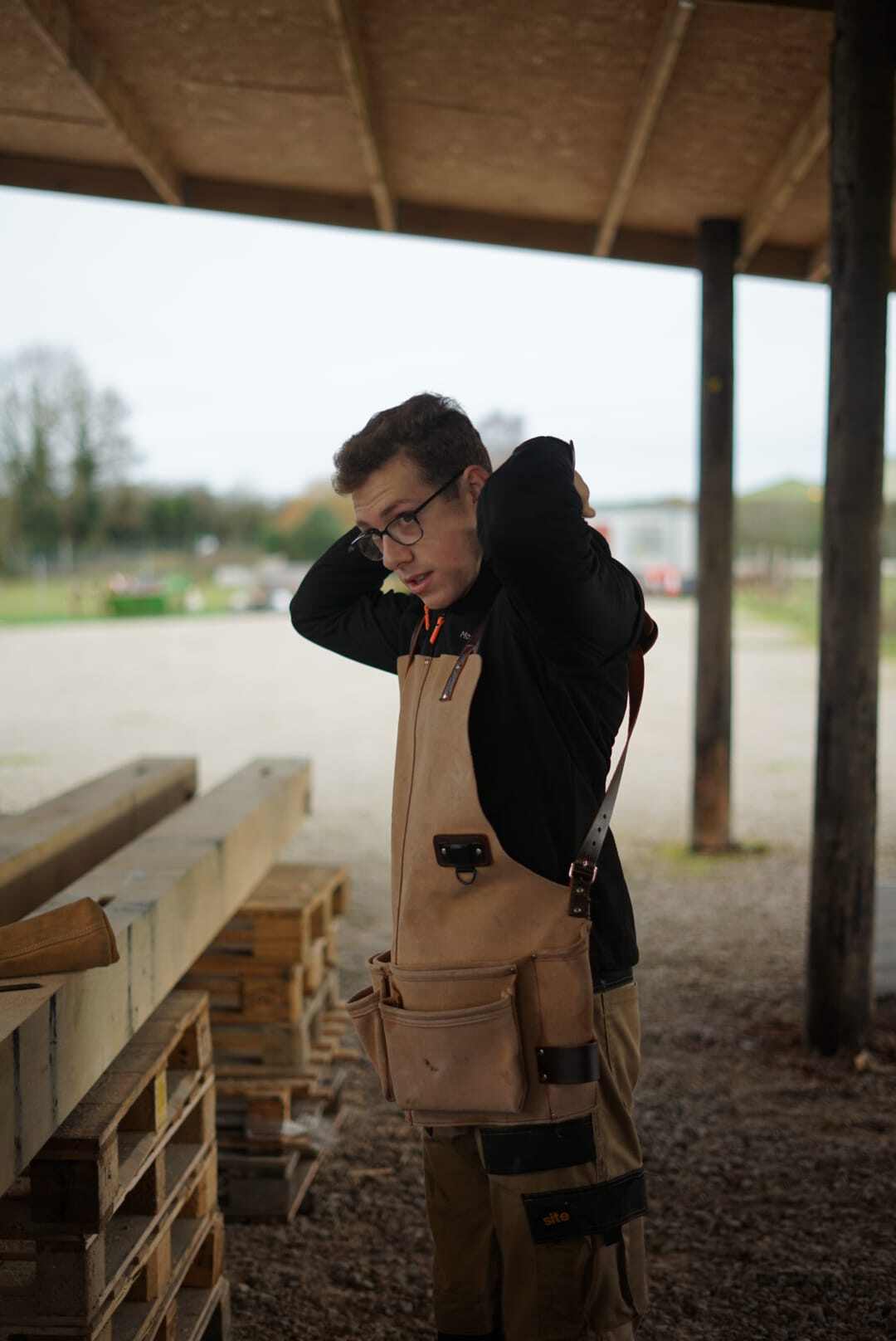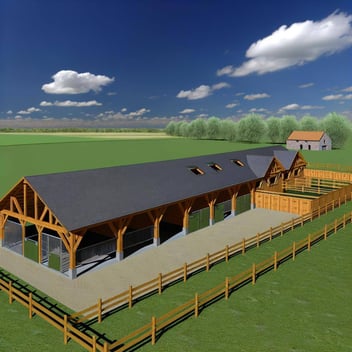When it comes to choosing a barn for your agricultural needs, there are two main options: timber frame barns and metal barns. Both have their own set of advantages and disadvantages, and the best choice for you depends on a your budget, aesthetic preferences, and specific usage scenarios .
Timber Frame Barns
Pros:
- Aesthetic Appeal: Timber frame barns offer a rustic, traditional look that many find visually appealing. The natural wood creates a warm, inviting atmosphere that can enhance the overall charm of your property.
- Durability: High-quality timber barns, when properly maintained, can last for generations. We often treat the timber used in these structures to resist pests and rot, making them durable and reliable.
- Insulation: Wood is a natural insulator, which means timber frame barns tend to maintain more stable temperatures inside. This can be particularly beneficial if you are housing livestock or storing temperature-sensitive crops.
- Customization: Timber barns can be easily customized to meet specific needs. Whether you need additional stalls, loft space, or unique architectural features, timber allows for flexibility in design.
- Construction Time: With the machinery Mottaghan Reid utilises, almost 90% of the structural frame can be pre machined offsite to allow for a rapid installation time. CNC machinery has meant that both accuracy and cost have been improved for our clients.
Cons:
- Cost: Timber frame barns can be more expensive to build than metal barns depending on the design, quality wood and the labour element in the construction process. When these buildings become more expensive it tends to be when the barn is required for non agricultural purposes e.g. event, recreational or living accommodation.
- Maintenance: Wood requires regular maintenance to protect against weathering, pests, and rot. This ongoing upkeep can be time-consuming and costly. However with a thoughtful design process a majority of maintenance can be cut out, for example ensuring the building is not built directly onto the ground/slab and making the right choices on cladding.
Metal Barns
Pros:
- Cost-Effective: Metal barns are generally less expensive to construct than timber frame barns. The materials and labor costs are lower, making it a more budget-friendly option.
- Low Maintenance: Metal barns require minimal maintenance compared to their wooden counterparts. They are resistant to pests, rot, and fire, reducing the need for ongoing upkeep.
- Durability: Metal barns are highly durable and can withstand harsh weather conditions, including heavy snow, strong winds, and rain. They are also less likely to suffer damage from pests such as termites.
- Quick Construction: Metal barns can be erected quickly, often in a matter of weeks. Pre-fabricated kits are available, which can speed up the construction process even further.
Cons:
- Aesthetic Limitations: While functional, metal barns may lack the traditional charm and warmth of timber frame barns. They can appear more industrial and less integrated with the natural landscape.
- Temperature Regulation: Metal is a poor insulator, which can lead to temperature extremes inside the barn. This can be mitigated with additional insulation, but it may increase costs.
- Condensation Issues: Metal barns can suffer from condensation, which can lead to moisture problems and affect the quality of stored goods or the health of livestock.
Factors to Consider
When deciding between a timber frame barn and a metal barn, consider the following factors:
- Budget: Determine your budget for the initial construction and ongoing maintenance. If cost is a primary concern, the best combination would be a timber frame with steel cladding getting the best out of both construction methods.
- Aesthetic Preferences: Consider how important the appearance of the barn is to you. If you value a traditional, rustic look, a timber frame barn will likely be more appealing.
- Climate: Think about the climate in your area. If you experience extreme temperatures or heavy snowfall, the insulating properties of a timber frame barn might be beneficial.
- Intended Use: Consider what you will be using the barn for. If you need a highly customizable space for specific agricultural activities, a timber frame barn offers more flexibility.
- Time Constraints: Evaluate how quickly you need the barn constructed. If you are on a tight timeline, and being that our timber frame barns are all pre manufactured offsite it and made of a lighter material than steel it may be an option to one again combine timber with steel in selected build elements.
Both timber frame barns and metal barns offer unique benefits, and as I mentioned at the beginning the best choice depends on your specific needs and circumstances. By weighing the pros and cons and considering your budget, aesthetic preferences, climate, intended use, and time constraints, you will be able to decide which building is for you and that will serve your agricultural needs effectively.


 Back
Back
 August 6, 2024
August 6, 2024  4 min read
4 min read

.png)

.png?width=352&name=Green%20Modern%20Discussion%20Topic%20Youtube%20Thumbnail%20(2).png)
